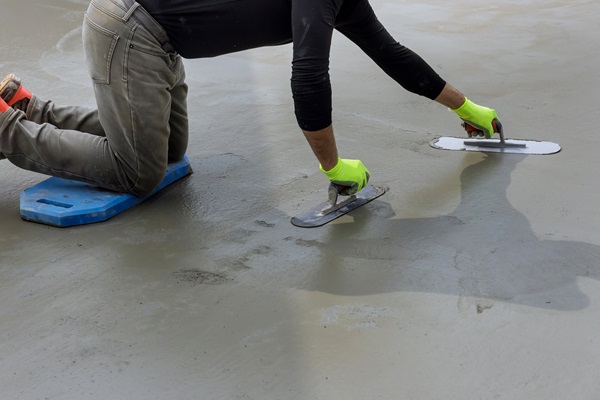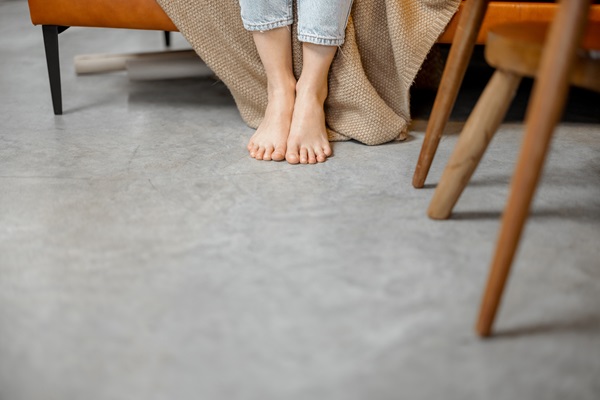Discover if epoxy floors are worth the money in this informative blog post. Learn about the benefits and drawbacks of epoxy flooring to help you make an informed decision for your next home renovation project.
Comparing Epoxy Floors to Other Flooring Options
Epoxy floors are a popular choice for many homeowners due to their durability, resistance to stains, and easy maintenance. When compared to other flooring options such as hardwood, tile, or carpet, epoxy floors stand out for their long-lasting nature and ability to withstand heavy traffic. Additionally, epoxy floors are highly customisable, allowing homeowners to choose from a variety of colours and finishes to suit their aesthetic preferences.
In terms of cost, epoxy floors tend to be more affordable than high-end hardwood or stone flooring options, making them a cost-effective choice for those looking to upgrade their floors without breaking the bank. While the initial installation cost of epoxy floors may be slightly higher than some other options, the long-term savings in maintenance and replacement costs make epoxy floors a wise investment in the overall value of a home.
DIY vs. Professional Epoxy Flooring Installation
When considering whether to opt for a DIY epoxy flooring installation or hire professionals, there are several factors to take into account. While the DIY route may seem more cost-effective initially, it’s crucial to consider your skill level and the time you can dedicate to the project. Epoxy floor installation requires precision and expertise to ensure a smooth and durable finish. If you lack the necessary experience or if you’re short on time, hiring professionals may be the more practical choice to achieve a high-quality result.
Professional epoxy flooring installers bring a wealth of knowledge and experience to the table. They are equipped with the right tools and skills to tackle any challenges that may arise during the installation process. By hiring experts, you can have peace of mind knowing that the job will be done efficiently and effectively. Additionally, professionals can provide valuable advice on the best type of epoxy floor coating for your specific needs, ensuring a long-lasting and visually appealing finish for your space.

Skill and Time Considerations
When contemplating whether to undertake the installation of epoxy flooring as a do-it-yourself project or hire a professional, one must consider the skills and time required for the task. Epoxy floor installation demands precision and attention to detail, as any errors during the process can result in a less durable and visually appealing outcome. Thus, individuals with prior experience in working with similar materials and following detailed instructions may opt for the DIY route. However, for those lacking the necessary skills or the time to dedicate to the project, seeking the assistance of a professional epoxy flooring installer is highly recommended.
Installing epoxy floors, whether as a DIY project or with professional help, is time-consuming. Proper surface preparation, including cleaning, repairing cracks, and ensuring a level base, is crucial for the longevity of the epoxy flooring. Additionally, applying the epoxy coating requires meticulous care to avoid bubbles, uneven spots, or premature drying. Therefore, individuals considering epoxy flooring should assess if they can commit the necessary time to complete the installation thoroughly and efficiently. Hiring a professional installer can save time and ensure a high-quality finish, especially for those with busy schedules or limited experience in flooring installations.
Cost Effectiveness in the Long Run
When considering the cost-effectiveness of epoxy floors over the long run, it’s essential to acknowledge the initial investment required for installation. While the upfront cost of epoxy flooring may be higher compared to some traditional options like carpet or vinyl, its durability and longevity make it a cost-effective choice in the long term. Epoxy floors are known for their resilience against heavy foot traffic, stains, and impacts, reducing the need for frequent repairs and replacements that can add up over time.
Moreover, the low maintenance requirements of epoxy floors contribute to their cost-effectiveness. Unlike other flooring materials that may require regular cleaning, polishing, or sealing, epoxy floors are easy to maintain with simple routine cleaning. This means fewer expenses on specialised cleaning products or professional maintenance services, saving you both time and money in the long run. By factoring in the durability and minimal upkeep needs of epoxy floors, their cost-effectiveness becomes apparent as a wise investment for both residential and commercial spaces.
Overcoming Common Misconceptions About Epoxy Floors
Many people have misconceptions about epoxy floors, often associating them with a cold, industrial look. However, this is far from the truth as epoxy floors come in a variety of colours and finishes that can complement any style or decor. From sleek and modern to rustic and traditional, there is an epoxy flooring option to suit every taste and aesthetic preference.
Another common misconception about epoxy floors is that they are difficult to maintain and require constant upkeep. In reality, epoxy floors are quite low maintenance and easy to clean. With regular sweeping and occasional mopping, epoxy floors can remain in top condition for many years, making them a practical and durable flooring choice for residential and commercial spaces.
Addressing Concerns about Slipperiness
Slipperiness can be a common concern associated with epoxy floors, especially in areas where moisture or spills are frequent. However, proper installation and finishing techniques can significantly reduce the risk of slip-related accidents. One effective way to address this issue is by incorporating non-slip additives into the epoxy coating during the application process. These additives create a textured surface that enhances traction and minimises the potential for slipping, even when the floor is wet.
Another factor to consider is the level of gloss or shine on the epoxy floor. While high-gloss finishes may look visually appealing, they can sometimes be more slippery than matte or satin finishes. Choosing a lower sheen level can not only help improve traction but also reduce the visibility of scratches and scuff marks over time. It is essential to strike a balance between aesthetics and safety when selecting the finish for your epoxy floor to ensure a functional and visually pleasing result.

FAQS
Are epoxy floors a good investment for my home or business?
Epoxy floors are a durable and long-lasting flooring option that can add value to your property. They are resistant to stains, chemicals, and wear, making them a cost-effective choice in the long run.
Can I install epoxy floors myself, or should I hire a professional?
While some DIY enthusiasts may choose to install epoxy floors themselves, hiring a professional ensures a proper and long-lasting installation. Professionals have the expertise and tools to achieve a flawless finish.
Are epoxy floors slippery when wet?
Epoxy floors can be slippery when wet, but additives can be incorporated during installation to increase traction and reduce slipperiness. It is important to address this concern to ensure safety.
How do epoxy floors compare to other flooring options in terms of cost?
While epoxy floors may have a higher upfront cost compared to some traditional flooring options, they are more cost-effective in the long run due to their durability and low maintenance requirements.
Are there any misconceptions about epoxy floors that need to be addressed?
One common misconception about epoxy floors is that they are only suitable for industrial or commercial spaces. In reality, epoxy floors are versatile and can be used in residential properties as well.